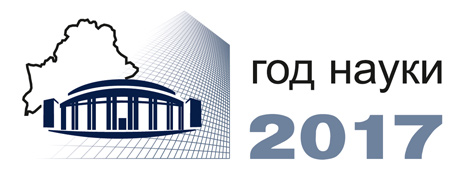Press releases
Some 2,600 delegates to turn up for second congress of Belarusian scientists
 MINSK, 5 December (BelTA) – About 2,600 delegates will take part in the second congress of Belarusian scientists on 12-13 December, BelTA learned from Chairman of the Presidium of the National Academy of Sciences of Belarus (NASB) Vladimir Gusakov on 5 December.
MINSK, 5 December (BelTA) – About 2,600 delegates will take part in the second congress of Belarusian scientists on 12-13 December, BelTA learned from Chairman of the Presidium of the National Academy of Sciences of Belarus (NASB) Vladimir Gusakov on 5 December.
The head of the academy said: “The previous congress took place ten years ago. This is why it is very important to sum up results and determine future tasks for the country’s research and technology sphere. About 2,600 people will work during the congress, including some 500 foreign delegates. We have breakthrough projects. We have something to show to foreign colleagues. We have even prepared a special edition to highlight brands of the National Academy of Sciences of Belarus.” Prominent scientists of the Union State of Belarus and Russia, the Commonwealth of Independent States, leading foreign academies of sciences, internationally recognized scientific research centers are expected to arrive in Minsk.
Nine panel sessions will be held on the first day of the congress to discuss the main directions in developing science and international cooperation. The sessions will take place at premises of various NASB organizations as well as organizations of other ministries and government agencies. The NASB Physics Institute will host the panel session on physics and informatics in technologies of the future. The panel session on engineering and industrial technology sciences aka Industry 4.0 will take place at the Belarusian National Technical University (BNTU). Modern chemistry and rational nature management will be discussed at the Belarusian State University, modern biotechnologies at the NASB’s Experimental Botany Institute, medical and pharmaceutical sciences at the Belarusian Medical Post-Graduation Academy. Useful applications of domestic humanitaristics will be considered at the Presidium of the National Academy of Sciences of Belarus. Innovative agribusiness solutions will be in focus at the NASB’s Applied Science Center for Agriculture Mechanization. Prospects for young scientists will be discussed at the Lyceum of the Belarusian State University. International scientific cooperation will be discussed at the Presidium of the National Academy of Sciences of Belarus. A session of the Council of the International Association of Academies of Sciences and a session of the advisory board for intellectual property protection and technology transfer under the aegis of this association will take place.
Each panel session will have a thematic exhibition of its own. A general interagency exhibition of eight clusters relating to the most important tasks of Belarusian science and corresponding to international technology development trends (information technologies, artificial intelligence, electric transport, unmanned vehicles, chemical technologies, biotechnologies, and other ones) will be opened during the plenary session on 13 December.
The draft strategy Science and Technologies: 2018-2040 will be the key item on the agenda of the second congress of Belarusian scientists. The document is going through public discussions now. The strategy determines priorities of long-term development of science and technologies and offers a set of instruments to improve the science and technology sphere. The document is supposed to enable new quality of economic growth in Belarus. It will help Belarus reach the international level in a number of areas in the future. The strategy has been put together by NASB scientists taking into account remarks and proposals from government agencies, working groups, and individual scientists. The strategy’s implementation is supposed to up the share of science in the GDP up to 3%. The share of breakthrough R&D will reach 30% of the total volume, with the share of high-tech sectors in the structure of the national economy up to 10%. Innovative products are expected to account for 25% of the total output of Belarusian industrial enterprises.
The congress will be the final event of the Year of Science. The congress will determine the main and most topical tasks and avenues in the development of Belarusian science in the long term, including the expansion of international cooperation and the integration of Belarusian science into the global scientific space. The concept of the long-term science- and innovation-powered security of Belarus and the general strategy for developing and bolstering the role of Belarusian science in economy will be worked out. Cooperation between science and the real sector will be determined. Decisions will be made to help form an effective national innovation system and ensure the persistent implementation of the knowledge economy model in Belarus.







 print version
print version make home page
make home page add to bookmarks
add to bookmarks

